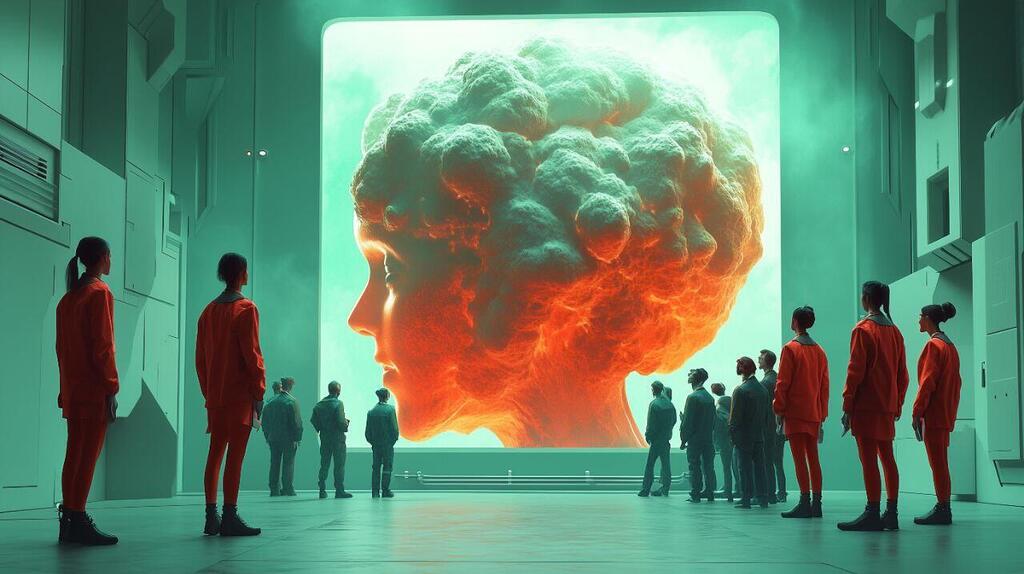Developer Offer
Try ImaginePro API with 50 Free Credits
Build and ship AI-powered visuals with Midjourney, Flux, and more — free credits refresh every month.
AI In Recruitment Friend Foe Or Essential Skill
The idea of recruiting employees who are well-versed in artificial intelligence (AI) might seem like an obvious goal for any employer. But in reality, the growing reliance on tools like ChatGPT, Claude, and Copilot has created a complex new reality for hiring managers.
 (Photo: Shutterstock AI)
(Photo: Shutterstock AI)
The AI Recruitment Challenge Authenticity vs Skill
“Everyone already understands that the use of GenAI tools in recruitment processes has skyrocketed recently,” says Lavi Friedman, co-founder and SVP of Growth at Upwind. “Candidates receive a take-home assignment, open ChatGPT or Copilot, and let the tool do the work.”
This isn’t just happening in technical roles like software development but also in sales, marketing and product management. The issue? No one can tell for sure where the candidate’s skills end and the AI’s contribution begins.
Strategies To Verify Candidate Abilities
To tackle this, companies have adopted two main strategies. Some organizations dig deeper into candidates’ thought processes by asking follow-up questions, while others have taken recruitment back to its roots: live, in-person testing.
“At Upwind, we chose the second approach,” Friedman explains. “Candidates come physically to the office, get their task in front of us, and solve it right there. We see everything—their thought process, how they approach the problem, and the steps they take to solve it. This completely eliminates the possibility of AI interference. There’s a whiteboard, there’s a problem, and you have to solve it yourself.”
 (Photo: shutterstock)
(Photo: shutterstock)
Other companies are considering similar methods, but many are still focused on refining their evaluation processes rather than moving entirely to in-person interviews. Maayan Biran Berkowitz, recruitment manager at Elad Systems, describes how AI-generated patterns in assignments are becoming increasingly obvious.
The Pitfalls Of AI Generated Submissions
“More and more candidates rely on AI tools for their take-home tasks, and we often see strikingly similar solutions from different candidates—sometimes with the same structure, phrasing or even identical errors. It raises questions about the authenticity of their work,” she explains.
The problem becomes even more apparent when candidates over-rely on AI tools without critical thinking. “ChatGPT and similar tools aim to ‘please,’ even when they don’t have accurate information,” says Ori Eden, human resources manager at Lasso Security. “We’ve seen candidates submit take-home tasks filled with significant errors because they blindly trusted the chatbot’s responses. These tools rely on public datasets, which often include unreliable or outdated information.”
A study conducted by Lasso found that developers who heavily depend on generative AI for coding are more likely to produce incorrect solutions, a problem that extends to technical exercises during recruitment.
Another issue is the repetitive nature of AI-generated responses. Since generative AI tools often provide templated answers, multiple candidates working on the same task tend to produce nearly identical solutions. “In such cases, we prefer candidates who deliver original, thoughtful answers—even if they’re wrong—over those who submit polished but generic AI outputs,” Eden explains.
Shifting Focus AI As A Demonstrable Skill
Despite these challenges, companies are learning to adapt. Instead of rejecting AI, they’re focusing on how candidates use it. “Tools like Claude, ChatGPT, and Copilot are now integral to developers’ daily work,” says Yonatan Itai, VP R&D at Cyera. “So the real question isn’t whether someone used AI but how they used it.”
 (Photo: Midjourney)
(Photo: Midjourney)
At Cyera, candidates aren’t penalized for using AI tools. Instead, the emphasis is on their ability to explain their work, adjust to changes in real time, and demonstrate critical thinking. “It’s not cheating—it’s a skill,” says Itai. “The ability to effectively use AI is a new talent that candidates bring to the table. We’re looking for creativity, flexibility, and analytical skills—traits that will define the workforce of the future.”
Adapting Hiring How To Evaluate AI Assisted Work
The rise of AI in hiring means recruitment teams need to rethink their processes. “I don’t see the use of AI tools as a negative thing,” says Sean Paz, Regional Architect Group Manager at Red Hat. “Today, the metrics for successful professionals include orchestrating various AI tools to improve performance. As hiring managers, we need to focus on the quality of the output, which also means updating our own skills.”
Paz explains that candidates who use AI during recruitment must be able to articulate their process. “If someone creates a strategic plan using AI, we want to hear about the prompts they used, the edits they made, and how they plan to implement the ideas. Whether it’s code, strategy or business development, they need to show their understanding.”
Restricting AI use isn’t practical—or desirable. “This is a powerful tool that can transform the employee experience,” Paz adds. “Our job is to adapt, not resist.”
AI Proficiency The New Standard In Recruitment
AI proficiency has become a baseline expectation for many roles. “Today, knowledge of AI isn’t a ‘nice to have’—it’s a requirement,” says Keren Goldberg, VP HR at Ready Group. Goldberg emphasizes that candidates who know how to leverage tools like ChatGPT or Copilot to improve performance are better prepared for dynamic, tech-driven work environments.
At Ready Group, recruitment tasks are divided into those that encourage AI use and those that prohibit it. “If the goal is to assess problem-solving, prioritization, or strategic thinking, AI can enhance the answer. What matters is how the candidate uses the tool—whether they critically engage with it or simply copy and paste,” Goldberg explains.
Some companies are taking AI integration even further by developing recruitment systems powered by AI. At Lightricks, a storytelling AI platform, the Canditech platform evaluates candidates’ assignments while encouraging transparency about AI usage. “Our goal is to assess not just raw abilities but also how candidates harness technology to their advantage,” says Pazit Aviv, director of Global Talent Acquisition at Lightricks.
Watch related video on YouTube
The Future Of Hiring Embracing AI Driven Talent
Candidates who submit shallow, AI-generated work without understanding or defending it are quickly identified. “On the other hand, candidates who use AI to streamline their work and innovate are the true stars of the job market,” says Avihay Kain, VP R&D at Guardio.
As AI becomes a core skill in many professions, recruiters are looking for candidates who can wield it effectively. “There’s no such thing as overreliance on AI if the candidate knows how to ask the right questions, craft clear prompts, and engage deeply with the process,” says Yossi Haimov, EVP at Ebra and AI expert.
Haimov believes the candidates of the future are those who fully embrace AI to transform their workflows. “A candidate who can draft content, create presentations, and even conduct mock interviews with avatars is someone who’s already operating in the new world. That’s the kind of person we want on our team,” he concludes.
Compare Plans & Pricing
Find the plan that matches your workload and unlock full access to ImaginePro.
| Plan | Price | Highlights |
|---|---|---|
| Standard | $8 / month |
|
| Premium | $20 / month |
|
Need custom terms? Talk to us to tailor credits, rate limits, or deployment options.
View All Pricing Details

